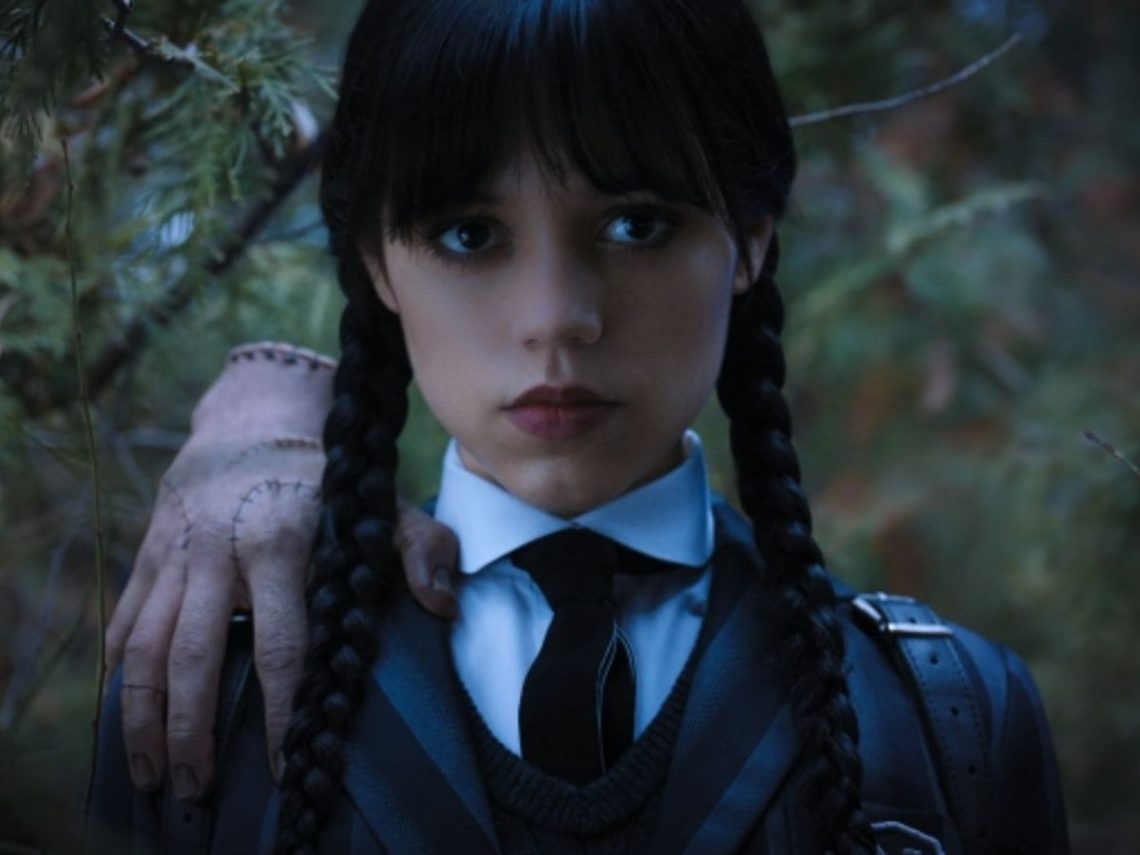
How Jenna Ortega became the defining vision of Wednesday Addams
For decades, Wednesday Addams has existed in the background of pop culture like a perfectly carved shadow. She has been an absolute icon, a dark, witty, and unbothered queen. The character has never needed to shout to be iconic. But something shifted the moment Jenna Ortega walked onto the screen in that sharp black uniform and stared straight through the soul of anyone watching. Without saying much, she did what few expected: she became the Wednesday. Not just a new version, but the definitive one.
It is not like we have been short on Wednesdays. The character’s been around since the 1930s, starting in Charles Addams’s original New Yorker cartoons. She was later brought to life in various live-action and animated formats, including the beloved 1960s sitcom and the ’90s films where Christina Ricci made her mark. Ricci’s Wednesday was instantly unforgettable. It was gleefully deadpan, morbidly funny, and ten steps ahead of everyone else in the room. For a lot of people, she was Wednesday until, well, 2022.
What Jenna Ortega managed to do was not replace Ricci but evolve the character in a way that feels eerily natural. Ricci’s version leaned into theatrical sarcasm. The kind of humour that sliced clean through every scene. She was in chaos with a smirk. On the other hand, Jenna Ortega gives us a version that is quieter, colder, and far more internal. This Wednesday does not crack jokes for effect. She does not perform her weirdness. She just is. And that is precisely what makes her hit harder, especially for a new generation.
There is stillness in Jenna’s performance, which says more than dialogue ever could. The way she holds eye contact for just a second too long. Her movements are stiff but precise, like she’s constantly restraining herself. All in all, she does not play Wednesday like a caricature. She plays her like a girl who has built emotional walls and refuses to let the world in. You can feel it in every pause, every glare, every tightly controlled word. There is more sadness under her surface. And strangely, that makes her more powerful.
It helps that the world around her is more layered, too. The Netflix series gives Wednesday space to be the centre of her own story, not just the quirky side character. And that was the whole point. She gets complexity and vulnerability. More depth, and this time, nothing softens her. A character so comfortable in its own skin that it does not need any external validation. If anything, it sharpens her even more. When she breaks down in therapy, it is not dramatic. It is raw. When she performs that now-iconic dance, it isn’t cute. It is unhinged in the best way. Everything about her is unexpected but completely earned.
Jenna’s version also speaks more clearly to Gen Z. This is a generation that treats emotional detachment like armour. That does not flinch at darkness. That knows what it means to be constantly watched, judged, and misread. And yet, they do not choose to cave; they fight. Wednesday’s weirdness isn’t just for laughs anymore. It is a form of control. It is a guide to survive. And in Jenna’s hands, it becomes something oddly relatable.
Of course, the cartoon version of Wednesday was never meant to be this deep. She started off as a one-note joke in a gothic family setup. Even Ricci’s take, as brilliant as it was, played her weirdness for laughs. She was entertaining but not fully real. Jenna gave her dimension. She made her someone you could imagine actually existing, in all her darkness, damage, and dry wit.
It is worth noting how gracefully the show handled the passing of the torch. Christina Ricci’s appearance in the series as Marilyn Thornhill wasn’t just fan service. It was symbolic. The old Wednesday meeting, the new one. One iconic performance nodding to the next. But even then, it is Jenna who holds the spotlight. Ricci may have walked so Jenna could run, but now that she’s taken off, there’s no looking back.
What makes Jenna Ortega’s Wednesday so definitive is not that she changed the character. It is that she finally let her be everything she was always meant to be. Not just the creepy girl in the corner. Not just a collection of one-liners. But a whole person is strange, sharp, lonely, angry, and brilliant. And completely unforgettable.